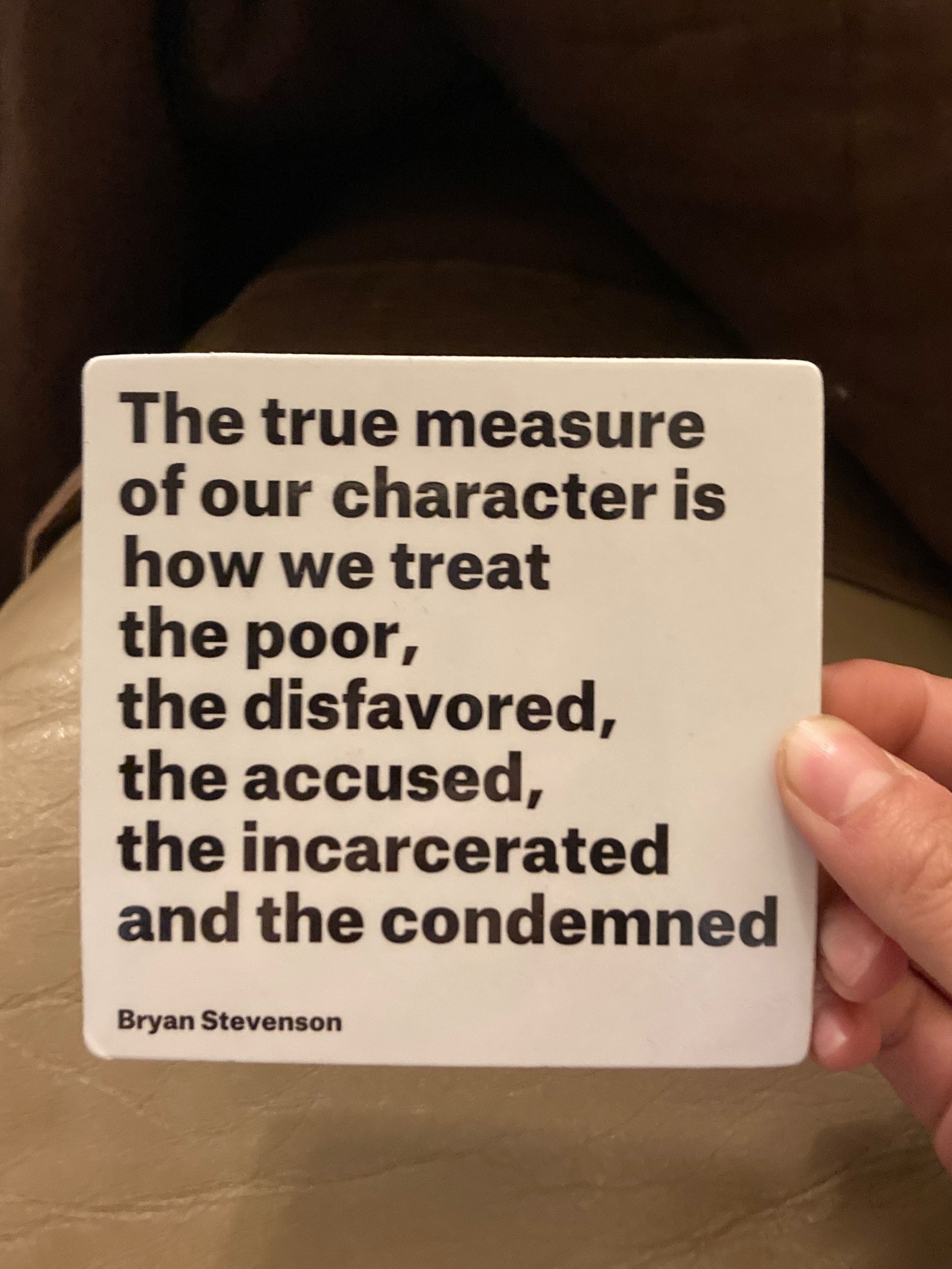Evie Huang - Selma
There are so many stories I could tell you about Selma: the day I tried soul food for the first time, the (literal second) night where Gibs broke her toe after making a lot of jokes about feet (lol), the late-night talks and questions about theology, the day we met Pastor Dion and discussed Biblical social justice, or even just the atmosphere of Selma itself and the people within it, especially during the Jubilee Festival. But I’ll keep it to one story – the day we went to the Legacy Museum in Montgomery, Alabama.
Everyone’s perspective on this day-long field trip is different, but all of us will agree that it was an absolute privilege and honor to go there. The museum and its neighboring memorial, the National Memorial for Peace and Justice, are founded and managed by the Equal Justice Initiative (EJI), a non-profit that I have looked up to for the past two years. One of the biggest reasons why I wanted to go to Selma was actually because of reading “Just Mercy” by Bryan Stevenson, the creator of the EJI. After I read his book (which I highly recommend to everyone), I was very inspired to pursue law and research more into the justice system as a way of living out Micah 6:8 which reads, “Act justly, love mercy, and walk humbly with the Lord your God.” When I heard that we were going to the Legacy Museum, I was excited and ready for what God had in store. The museum is unlike any other that I have been to. It is deeply personal as it involves a multitude of interactive exhibits, interviews with real-life people, and heavily-researched information.
The museum beautifully reveals that just because slavery “ended” after the Civil War did not mean that African-Americans were safe. In each of the four sections of the museum (Transatlantic slave trade, slavery, Jim Crow, and mass incarceration), there are depictions of actors reciting real letters from slaves, sculptures, and various art pieces portraying the African-American experience, first-person accounts from witnesses of lynchings as well as words from the descendants of lynching victims, a gallery of racist signs from the Jim Crow Era in America, and more. Section after section, our team was blown away by the truth of it all and the depth that the EJI went into depicting the horrific history that African-Americans had to go through (and still often have to experience).
One of the most compelling exhibits for me was in the mass incarceration section, where I spent most of my time. There were multiple fake prison phone booths set up, and sitting across from visitors were real inmates who would tell their stories over the prison phones. It felt very genuine and intimate as they “talked” to me over the phone. There were about five different stories that cycled through, including one inmate who was put on death row for almost 30 years before the courts found out that the evidence against him was incorrect. Museums often feel like a snapshot of the past, but this exhibit, and many others like it, made the history at the Legacy Museum feel real and present. We often don’t read about or hear about mass incarceration, but in reality, it is alive and it is still growing. There are so many people trapped behind bars unfairly, and they need to know that the Lord still loves them and is looking out for them.
A lot of people have asked me what Selma was like and what we did there, and among all the stories, I always, always mention the Legacy Museum to them. Even though it is not explicitly Christian, I think the museum helped me realize that it is crucial for Christians in America to know our country’s history and see the ways we can bring God’s love into a broken world. It is not acceptable to push injustices under the carpet: we need to truly know people and their history in order to better love them and show God to them. Being in Selma and visiting the Legacy Museum further fueled the fire in me to become a better advocate for others as a lawyer and to combat the forces of racial prejudice within the justice system with God’s supernatural mercy, compassion, and justice.





